
Geneviève Almouzni
Institut Curie
France
EMBL Conference
This conference will take place at EMBL Heidelberg, with the option to attend virtually.
Epigenetics refers to heritable changes in gene expression that do not involve changes to the underlying DNA sequence. At least three systems including DNA methylation, histone modifications and non-coding RNAs (ncRNA) are considered to play fundamental roles in epigenetic regulation.
Research over the last two decades has uncovered the role of epigenetics in a variety of human disorders and fatal diseases. Moreover influence of age, environment, lifestyle, and disease state on epigenetic states is being increasingly appreciated and actively studied.
This conference provides an international forum for cutting edge research in chromatin and epigenetics. It provides the “focal hub” for people to present their research and exchange ideas. Renowned speakers will cover the latest advances in the field.
“The conference was very thoughtfully organised, and the subject matter allowed me to deepen my knowledge on many interesting levels. It was a valuable experience that I would like to repeat in the future.” – Magdalena, University of Lodz, Poland
“The training provided by EMBL was very fruitful and productive. I would like to be a part of such training in future too and also like to recommend others to be part of it.” – Dr. Laxman Khanal, BPKIHS, Nepal
“Although online, this conference was well-organised with an overall great quality of talks about many novelties. If I can, I will definitely attend the next time, maybe already on-site!” – Tobias Hohl, Max-Planck-Institute of Immunology and Epigenetics, Germany
Please see EMBL’s COVID-19 safety recommendations if attending the on-site event.

Max Planck Institute of Immunobiology and Epigenetics
Germany

The University of Edinburgh
UK
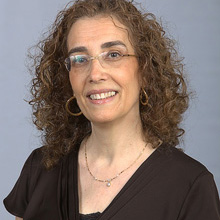
The Hebrew University of Jerusalem
Israel
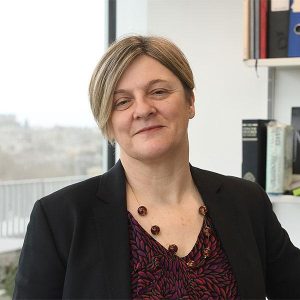
The University of Edinburgh
UK

Friedrich Miescher Institute for Biomedical Research
Switzerland
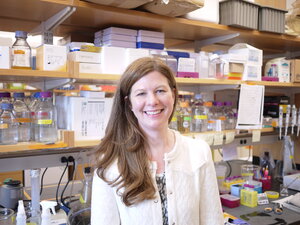
Harvard Medical School
USA

Max Planck Institute of Immunobiology and Epigenetics
Germany

Yale University
USA
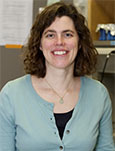
Whitehead Institute for Biomedical Research
USA
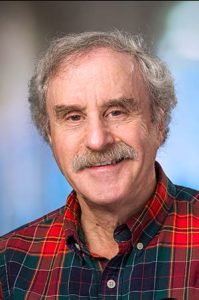
Fred Hutchinson Cancer Research Center
USA
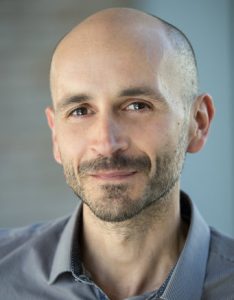
Max Planck Institute of Immunobiology and Epigenetics
Germany
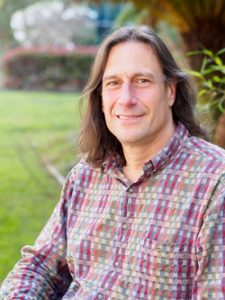
University of California, Berkeley
USA

RIKEN
Japan
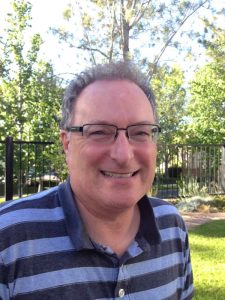
University of California, San Diego
USA
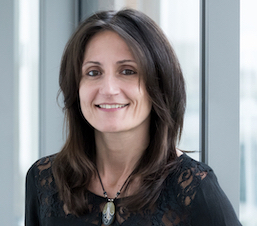
Francis Crick Institute
UK
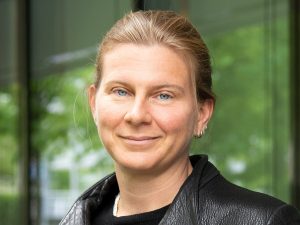
Max Planck Institute for Biology of Ageing
Germany

Weizmann Institute of Science
Israel

Ludwig Cancer Research
UK
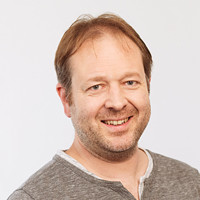
Research Institute of Molecular Pathology
Austria
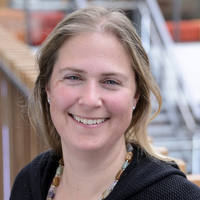
Wellcome Sanger Institute
UK

Howard Hughes Medical Institute, Harvard Medical School and Boston Children’s Hospital
USA

Max Planck Institute of Immunobiology and Epigenetics
Germany

The Hebrew University of Jerusalem
Israel

Max Planck Institute of Immunobiology and Epigenetics
Germany
Got something to say? Tweet it! #EMBLChromatin
| Time (Berlin/Europe) | Speaker | Location |
|---|---|---|
| 12:30 – 14:30 | Arrival and Registration | ATC Registration Desk |
| 13:00-14:00 | Pre-conference workshop: “Single molecule biology: democratizing optical tweezers to enable your breakthrough discoveries in chromatin biology and epigenetics” by LUMICKS B.V. (registration required) | Courtyard room |
| 14:30 – 16:50 | Session 1: Chromatin Regulation Chairs: Yang Shi and Wendy Bickmore | |
| 14:30 – 14:45 | Opening remarks Nicola Iovino – Max Planck Institute of Immunobiology and Epigenetics, Germany | Klaus Tschira Auditorium |
| 14:45 – 15:10 | Genome-wide mapping of chromatin dynamics Steven Henifkoff – Fred Hutchinson Cancer Research Center, USA | Klaus Tschira Auditorium |
| 15:10 – 15:25 | Repair of double strand breaks in Drosophila polycomb bodies Aniek Janssen – University Medical Center Utrecht, The Netherlands | Klaus Tschira Auditorium |
| 15:25 – 15:40 | A regulator of RNA Polymerase III embedded in the tDNA chromatin proteome Fred van Leeuwen – Netherlands Cancer Institute, The Netherlands | Klaus Tschira Auditorium |
| 15:40 – 16:05 | Epigenetic dynamics during plant reproduction Mary Gehring – Whitehead Institute for Biomedical Research, USA | Klaus Tschira Auditorium |
| 16:05 – 16:50 | Coffee Break & Meet the Speakers of Day 1 Steven Henikoff, Mary Gehring, Gary Karpen, Robin Allshire, Marc Bühler | Auditorium Foyer |
| 16:50 – 19:05 | Session 2: Heterochromatin Chairs: Yehudit Bergman and Alexander Stark | |
| 16:50 – 17:15 | New insights into formation, organization and function of heterochromatin condensates Gary Karpen – University of California, Berkeley, USA | Klaus Tschira Auditorium |
| 17:15 – 17:30 | Coordination of chromatin functions and genome stability by the nuclear membrane protein Lem2 Sigurd Braun – Justus-Liebig-Universität Gießen, Germany | Klaus Tschira Auditorium |
| 17:30 – 17:45 | The bromodomain inhibitor JQ1 is a molecular glue targeting BRD4 to centromeric chromatin Samuel Corless – Karlsruhe Institute of Technology (KIT), Germany | Klaus Tschira Auditorium |
| 17:45 – 18:10 | Epigenetic Regulation, Heterochromatin and Antifungal Resistance Robin Allshire – University of Edinburgh, UK Not available on demand | Klaus Tschira Auditorium |
| 18:10 – 18:25 | VIRTUAL Linker histone H1 differentially impacts the Polycomb chromatin landscape at genes and telomeric repeats in Arabidopsis Fredy Barneche – Ecole Normale Supérieure, France **remote speaker** | Klaus Tschira Auditorium |
| 18:25 – 18:40 | DiMeLo-seq: mapping protein-DNA interactions and DNA modifications on single chromatin fibers using long-read sequencing Nicolas Altemose – Stanford University, USA | Klaus Tschira Auditorium |
| 18:40 – 19:05 | The ChAHP complexes Marc Bühler – Friedrich Miescher Institute for Biomedical Research, Switzerland Not available on demand | Klaus Tschira Auditorium |
| 19:05 – 20:30 | Dinner | EMBL Canteen |
| 20:30 – 22:00 | Drinks and poster preview | ATC Foyer and Helix A&B |
| Time (Berlin/Europe) | Speaker | Location |
|---|---|---|
| 8:30 – 9:00 | Coffee and light refreshments | Auditorium Foyer |
| 9:00 – 12:30 | Session 3: Developmental epigenetics Chairs: Gary Karpen and Raffaella Santoro | |
| 9:00 – 9:25 | Epigenetic regulation by the MSLs: old complex, new facts Asifa Akhtar – Max Planck Institute of Immunobiology and Epigenetics, Germany Not available on demand | Klaus Tschira Auditorium |
| 9:25 – 9:50 | Mechanism and function of PRC1 and PRC2 in mouse gastrulation Yi Zhang – Howard Hughes Medical Institute, Harvard Medical School and Boston Children’s Hospital, USA Not available on demand | Klaus Tschira Auditorium |
| 9:50 – 10:05 | The Tbx factor Eomes instructs global chromatin dynamics during pluripotency exit to initiate first lineage specification Sebastian Arnold – University of Freiburg, Germany | Klaus Tschira Auditorium |
| 10:05-10:20 | Signal decoding at the Xist locus Edda Schulz – Max Planck Institute for Molecular Genetics, Germany | Klaus Tschira Auditorium |
| 10:20 – 11:05 | Coffee Break & Meet the Speakers of Day 2 Asifa Akhtar, Yi Zhang, Nicola Iovino, Rong Fan, Yehudit Bergman, Ibrahim Cissé, Efrat Shema | Auditorium Foyer |
| 11:05 – 11:30 | Epigenetics of early development Nicola Iovino – Max Planck Institute of Immunobiology and Epigenetics, Germany Not available on demand | Klaus Tschira Auditorium |
| 11:30 – 11:45 | Molecular timetable of differentiation in human pluripotent stem cells Maria Rostovskaya – Babraham Institute, UK | Klaus Tschira Auditorium |
| 11:45 – 12:00 | Uncovering how the genome directs development – mother to daughter cell regulation of chromatin and gene expression in C. elegans embryogenesis Julie Ahringer – University of Cambridge, UK | Klaus Tschira Auditorium |
| 12:00 – 12:15 | Soma-to-germline small RNA transfer promotes intragenerational survival to environmental stress Germano Cecere – Institut Pasteur, France | Klaus Tschira Auditorium |
| 12:15 – 12:30 | RNA pol I shapes the large-scale chromatin architecture in response to nutrients in C. elegans Daphne Cabianca – Helmholtz Zentrum Munich, Germany Not available on demand | Klaus Tschira Auditorium |
| 12:30 – 14:30 | Lunch | Auditorium Foyer |
| 13:30 – 15:30 | Poster Session I (odd numbers) | Helix A & B |
| 15:30 – 18:25 | Session 4: Single cell genomics and microscopy Chairs: Asifa Akhtar and Cornelis Murre | |
| 15:30 – 15:55 | Epigenetic programming of allelic extinction Yehudit Bergman – Hebrew University of Jerusalem, Israel | Klaus Tschira Auditorium |
| 15:55 – 16:10 | Genome-wide profiling of DNA repair detects higher-order coordination in single cells Jop Kind – Hubrecht Institute, The Netherlands | Klaus Tschira Auditorium |
| 16:10 – 16:40 | Coffee Break & Meet the Editors Tiago Faial, Linda Koch, Sara Osman, Sabrya Carim, Lavinia Arseni, Vitor Sousa | Auditorium Foyer |
| 16:40 – 17:05 | Spatial Epigenome Sequencing of Mouse and Human Brain Rong Fan – Yale University, USA | Klaus Tschira Auditorium |
| 17:05 – 17:30 | Single-molecule and single-cell epigenetics: Decoding the epigenome for cancer research and diagnostics Efrat Shema – Weizmann Institute of Science, Israel | Klaus Tschira Auditorium |
| 17:30 – 17:55 | Super-resolution imaging of transcription in living cells Ibrahim Cissé – Max Planck Institute of Immunobiology and Epigenetics, Germany | Klaus Tschira Auditorium |
| 17:55 – 18:10 | TET activity propagates cellular memory through embryonic dormancy Aydan Bulut-Karslioglu – Max Planck Institute for Molecular Genetics, Germany | Klaus Tschira Auditorium |
| 18:10 – 18:25 | The Drosophila acetyltransferase chameau (chm) promotes starvation resilience at the expense of a shortened life span Axel Imhof – Ludwig-Maximilians-University of Munich, Germany | Klaus Tschira Auditorium |
| 18:25 – 20:00 | Dinner | EMBL Canteen |
| 20:00 – 22:00 | Pub quiz with after dinner drinks | EMBL Canteen |
| Time (Berlin/Europe) | Speaker | Location |
|---|---|---|
| 8:30 – 9:00 | Coffee and light refreshments | Auditorium Foyer |
| 9:00 – 17:25 | Session 5: Transcription and chromatin and diseases Morning Chairs: L. Stirling Churchman and Robin Allshire Afternoon Chairs: Steven Henifkoff and Julie Ahringer | |
| 9:00 – 9:25 | Chromatin regulation in immuno-oncology Yang Shi – Ludwig Cancer Research, UK Not available on demand | Klaus Tschira Auditorium |
| 9:25 – 9:40 | Transcription restart stimulates chromatin reassembly following DNA replication Constance Alabert – University of Dundee, UK | Klaus Tschira Auditorium |
| 9:40 – 9:55 | Nucleosomal Asymmetry Regulates Reader Recruitment and Poising at Bivalent Domains Philipp Voigt – Babraham Institute, UK | Klaus Tschira Auditorium |
| 9:55 – 10:20 | Decoding regulatory networks in human development: one cell at a time Sarah Teichmann – Wellcome Sanger Institute, UK | Klaus Tschira Auditorium |
| 10:20 – 11:05 | Coffee Break & Meet the Speakers of Day 3 Yang Shi, Paola Scaffidi, L.Stirling Churchman, Sarah Teichmann | Auditorium Foyer |
| 11:05 – 11:30 | Epigenetic dysregulation and cancer evolution Paola Scaffidi – Francis Crick Institute, UK | Klaus Tschira Auditorium |
| 11:30 – 11:45 | Intrinsic transcription factor cooperativity in reconstituted naïve embryonic chromatin Peter B. Becker – Ludwig-Maximilians-University of Munich, Germany | Klaus Tschira Auditorium |
| 11:45 – 12:00 | H4K16ac activates the transcription of transposable elements and contributes to their cis-regulatory function Pradeepa Madapura – Queen Mary University of London, UK | Klaus Tschira Auditorium |
| 12:00 – 14:00 | Lunch | Auditorium Foyer |
| 13:00 – 15:00 | Poster Session II (even numbers) | Helix A & B |
| 15:00 – 15:25 | RNA Polymerase II pausing temporally coordinates cell cycle progression and erythroid differentiation L. Stirling Churchman – Harvard Medical School, USA Not available on demand | Klaus Tschira Auditorium |
| 15:25 – 15:40 | An RNA-dependent and phase-separated active subnuclear compartment safeguards repressive chromatin domains Raffaella Santoro – University of Zurich, Switzerland | Klaus Tschira Auditorium |
| 15:40 – 15:55 | Chromatin ubiquitylation in development and disease Peter Verrijzer – Erasmus University Medical Center, The Netherlands | Klaus Tschira Auditorium |
| 15:55 – 16:20 | Epigenetic mechanisms of microglia‑driven neurodegeneration Anne Schäfer – Max Planck Institute for Biology of Ageing, Germany **remote speaker** | Klaus Tschira Auditorium |
| 16:20 – 16:35 | Chem-map profiles drug binding to chromatin in cells Zutao Yu – University of Cambridge, UK | Klaus Tschira Auditorium |
| 16:35 – 16:50 | The Sex-specific Factor SOA Establishes X Chromosome Dosage Compensation in Anopheles Mosquitos Claudia Keller Valsecchi – Institute of Molecular Biology (IMB Mainz), Germany | Klaus Tschira Auditorium |
| 16:50 – 17:00 | Poster Prize Announcements | Klaus Tschira Auditorium |
| 17:00 – 17:20 | Coffee Break | Auditorium Foyer |
| Free evening |
| Time (Berlin/Europe) | Speaker | Location |
|---|---|---|
| 8:30 – 9:00 | Coffee and light refreshments | Auditorium Foyer |
| 9:00 – 16:40 | Session 6: Nuclear architecture Morning Chairs: Ibrahim Cissé and Paola Scaffidi Afternoon Chairs: Nicola Iovino and Yi Zhang | |
| 9:00 – 9:25 | Enhancer-promoter contacts – depends how you look at it Wendy Bickmore – The University of Edinburgh, UK | Klaus Tschira Auditorium |
| 9:25 – 9:40 | Chromosome-scale organization of the regulatory genome in the Drosophila nervous system Maria Cristina Gambetta – University of Lausanne, Switzerland Not available on demand | Klaus Tschira Auditorium |
| 9:40 – 9:55 | In vitro reconstitution of chromatin domains Marieke Oudelaar – Max Planck Institute for Multidisciplinary Sciences, Germany | Klaus Tschira Auditorium |
| 9:55 – 10:20 | Decoding transcriptional regulation Alexander Stark – Research Institute of Molecular Pathology, Austria Not available on demand | Klaus Tschira Auditorium |
| 10:20 – 11:05 | Coffee Break & Meet the Speakers of Day 4 Wendy Bickmore, Alexander Stark, Cornelis Murre, Haruhiko Koseki, Genevieve Almouzni | Auditorium Foyer |
| 11:05 – 11:20 | Structural basis of H3K36 trimethylation by SETD2 during chromatin transcription Lucas Farnung – Harvard Medical School, USA | Klaus Tschira Auditorium |
| 11:20 – 11:35 | Recycling of modified H2A-H2B provides short-term memory of chromatin states Valentin Flury – University of Copenhagen, Denmark | Klaus Tschira Auditorium |
| 11:35 – 11:50 | Poster Prize Short talk 1: Alternative splicing decouples local from global PRC2 activity Niccolò Arecco, Centre for Genomic Regulation (CRG), Spain | Klaus Tschira Auditorium |
| 11:50 – 12:05 | Poster Prize Short talk 2: Histone divergence in Trypanosoma brucei results in unique alterations in nucleosome structure Gauri Deak, University of Edinburgh, UK | Klaus Tschira Auditorium |
| 12:05 – 13:35 | Lunch | Canteen |
| 13:35 – 14:00 | Molecular Mechanisms that Instruct Nuclear Shape Cornelis Murre – University of California, San Diego, USA Not available on demand | Klaus Tschira Auditorium |
| 14:00 – 14:15 | DNA elements tether Polycomb Repressive Complex 1 to translate histone methylation into chromatin folding Yuri Schwartz – Umeå University, Sweden | Klaus Tschira Auditorium |
| 14:15 – 14:30 | Genome access is transcription factor specific and defined by nucleosome position Ralph Grand – Center for Molecular Biology of Heidelberg University (ZMBH), DKFZ-ZMBH Alliance, Germany | Klaus Tschira Auditorium |
| 14:30 – 14:55 | SKP1A links Polycomb-repressed genes with proteasome Haruhiko Koseki – RIKEN, Japan | Klaus Tschira Auditorium |
| 14:55 – 15:25 | Coffee Break | Auditorium Foyer |
| 15:25 – 15:40 | Nucleosome sliding in condensed chromatin Felix Mueller-Planitz- Institute for physiological chemistry TU Dresden, Germany | Klaus Tschira Auditorium |
| 15:40 – 15:55 | Chromosome structure regulated by a transcription-dependent RNA polymer gel Nick Gilbert – The University of Edinburgh, UK | Klaus Tschira Auditorium |
| 15:55 – 16:40 | Histones variants and friends, a state of play for shaping chromatin and cell fate Keynote speaker: Geneviève Almouzni – Institut Curie, France Not available on demand | Klaus Tschira Auditorium |
| 16:40 – 17:00 | Closing remarks | Klaus Tschira Auditorium |
| 17:00 – 18:00 | Apéritif | ATC Foyer |
| 18:00 – 20:30 | Conference Dinner | EMBL Canteen |
| 20:30 – 00:00 | Conference Party – Live DJ and drinks | Auditorium Foyer |
On-site registration fees include admission, conference materials, COVID-19 safety measures, meals and coffee breaks. Participants are expected to book and pay their own accommodation and travel expenses.
Virtual registration fees include access to all of the talks (live streamed and on demand) and the facility to submit questions.
| On-site Academia | €775 |
| On-site PhD Student | €675 |
| On-site Industry | €975 |
| Virtual Academia | €200 |
| Virtual PhD Student | €150 |
| Virtual Industry | €250 |
NO visa support letters will be issued until payment of the registration fee is confirmed.
Accredited journalists may be eligible to register for complimentary press registration. Registrants may be required to provide accreditation or equivalent proof of press membership after registration. Please contact Charlotte Courtney for more information. Please note that we do not offer complimentary registrations for editors of scientific journals.
Registration will be on a first-come, first-served basis. Your place can only be confirmed after payment of the registration fee. If you are added to our waiting list, please consider taking advantage of our offerings to participate virtually.
On-site participants: Types of payments accepted are international bank transfers and credit card payments.
Virtual participants: We are only able to accept card payments. In exceptional cases, we can accept bank transfers. Please contact events@embl.de for details.
Only participants registering to attend the on-site event are eligible to submit an abstract. Abstracts will not be accepted from virtual participants.
After registration you can submit your abstract via a separate link that will be provided in the email confirmation. Alternatively, you can access the link on the confirmation page directly after registering. The same login credentials are used for both processes.
Please note:
Abstract body: The limit of 2000 characters refers to manually typed text and excludes spaces. If an error occurs try using a different web browser (preferably Google Chrome or Mozilla Firefox).
If you copy-paste the text into the form, hidden formatting might still be included which may cause the text to exceed the 2,000 character limit resulting in an error message. We recommend you clear all formatting before pasting in the text.
If you have special symbols in your text, make sure you are using Unicode characters, otherwise these will not be recognised.
Title: The title should not exceed 20 words. Only the first word of the title should start with a capital letter and the rest should be lowercase.
Authors and affiliations: Please fill in the author’s details as requested in the online form. The compulsory fields are: First Name, Last Name, Organisation Name (Affiliation or Company), Country and Email.
Kindly mark only one author in the role of First Author and please don’t forget to indicate who will be the Presenter.
Please enter your co-authors correctly via the system by adding accounts together with their organisation/institute. Do not copy-paste them into the body of the abstract text, as they will not be indexed in the abstract book.
Presentation types: When submitting your abstract, you can apply for an oral or poster presentation. A selection process will take place with the results announced 2-3 weeks after the abstract submission deadline.
For detailed instructions on how to submit a conference abstract, follow the instructions provided in this video.
Please check our FAQs pages for further information on how to submit an abstract.
Limited financial assistance is provided by the EMBL Advanced Training Centre Corporate Partnership Programme and EMBO in the form of both registration fee waivers and travel grants. These are available for on-site participants at EMBL Conferences and EMBO|EMBL Symposia, and for on-site and virtual participants at EMBO Workshops. We are currently working on securing funding for all virtual participants, and ask that you please apply for financial assistance for both on-site and virtual participation.
Your place in the meeting is only confirmed by paying the registration fee, which is mandatory even when receiving a fee waiver.
The fee waiver will cover the registration sum that you have paid to attend the course or conference.
The travel grant will cover the cost of travel to an on-site event (airfare, train, bus, taxi, accommodation, visa, and/or registration fees*) and is provided up to specified caps which are normally as follows:
–up to €400 for participants travelling to an EMBL Conference or EMBO|EMBL Symposium from within Europe.
–up to €1000 for participants travelling to an EMBL Conference or EMBO|EMBL Symposium from outside Europe.
–up to €500 for any participant travelling to an EMBO Workshop.
–up to €1000 for any participant working in Chile, India, Singapore or Taiwan travelling to an EMBO Workshop.
–up to €700 for any participant working in Croatia, Czech Republic, Estonia, Greece, Hungary, Italy, Lithuania, Luxembourg, Poland, Slovenia, and Turkey travelling to an EMBO Workshop.
*Registration fees are only covered for EMBO Workshops
The organisers may reduce the grant cap to accommodate more participants. Recipients will be notified of their travel cap amount when they are informed of the outcome of their application. Original receipts must be provided with your signature for all costs incurred within two months of completion of travel. Scanned copies cannot be accepted.
For EMBO Workshop participants with children, there is the possibility to apply for a childcare grant to offset child care costs incurred by participants or speakers when participating at a conference. Eligible costs include fees for a baby-sitter or child-care facility, travel costs for a caregiver, or travel costs for taking the child to the meeting etc. Please note that priority will be given to early stage researchers. A maximum amount of €500 can be awarded per participant applying for an EMBO childcare grant. In order to apply for this grant for EMBO Workshops, you must be registered by the abstract submission deadline.
On-site participants
You may apply for financial assistance when submitting your abstract. In your application you will be asked to answer questions regarding why your lab cannot fund your attendance and how your attendance will make a difference to your career. Application for financial support will not affect the outcome of your registration application.
Virtual participants
If you are attending virtually, you can apply for financial assistance in the submission portal by the abstract deadline. Read the instructions on how to apply for financial assistance. Only submissions for financial assistance will be accepted. Presentation abstracts cannot be submitted here and will be declined.
In your application you will be asked to summarise your current work, answer questions regarding why your lab cannot fund your attendance, and how your attendance will make a difference to your career. Application for financial support will not affect the outcome of your registration application.
The scientific organisers will select the recipients of all financial assistance during the abstract selection process. Results will be announced approximately 6 – 8 weeks before the event start date, however for some events this may be delayed. Selection results do not impact your admission to the meeting. Selection is based on scientific merit, your current work or study location, the reasons for needing financial support, and the impact this event will have on your career.
Costs will be reimbursed after the meeting only once a reimbursement form and original receipts (from travel costs) have been received.
View our list of external funding opportunities and information on attending a conference as an event reporter.
For further information about financial assistance please refer to the FAQ page.
Accommodation is not included in the conference registration fee.
As further changes in our events are possible due to COVID-19, you should book flights, trains and hotels with flexible options and favourable cancellation conditions.
The hotels below have rooms on hold for participants until 14th April 2023, in some cases at special rates. Please email the hotel directly, quoting the booking code CHR23-01 to confirm the exact price of the room.
Conference shuttle buses are free of charge for participants, and depart from designated bus stops near the hotels to EMBL and back, mornings and evenings.
The bus stops for this conference are:
Here are the shuttle bus times for EMBL Conference: Chromatin and epigenetics.
View Conference shuttle bus stops and hotels on a larger map. Please note that not every bus stop will be used for every event.
Address: EMBL, Meyerhofstraße 1, 69117 Heidelberg, Germany. For further information on getting to EMBL Heidelberg visit Public Transportation to the Venue. For information about accommodation and local transportation please refer to the FAQ page.
All meals and coffee breaks are included in the registration fee. Our catering staff will prepare a wide variety of vegetarian meals, meat and fish dishes, soups, pasta, fresh fruit and vegetables, as well as a variety of desserts.
Please wear your badge at all times when serving yourself.
No food or drinks are allowed in the auditorium.
There are lockers available next to the stairs leading down into the Auditorium. You will find some of those equipped with sockets to charge your smartphone/tablet etc.
In most places the electricity is 220 volts AC (50 cycles). An adaptor and a plug that fits the German socket may be needed for your appliances/laptop (i.e. American, Japanese, etc.). A USB charging station for electronic devices is available at the registration desk.
If you are interested in purchasing an EMBL souvenir (products presented in the glass display in the registration area), please ask at the registration desk for more information.
Please read EMBL’s COVID-19 safety policy for on-site events.
Do not smoke in any EMBL building.
Eating and drinking is prohibited in the Auditorium and all laboratories.
Do not enter any restricted areas or the laboratories unless instructed to do so.
If first aid is required …
In case of fire …
Beyond first aid…
Please remember to bring your own medication, if needed, to the conference. Note that the next pharmacy is a 4-minute drive from the EMBL, but for many medications you will be required to see a doctor to get a prescription.
Ensure in advance that your medical insurance will cover you during your visit in the event that you do need to see a doctor while in Heidelberg. In any case, the EMBL Course and Conference Office will assist you to get to the pharmacy and a doctor of your choice if necessary.
Wi-Fi is available everywhere on the premises using the EMBL-Events network and the event specific password, which will be provided on site. The eduroam network (secure, world-wide roaming access service developed for the international research and education community) is also available.
‘’Lost and Found’’ are kept at the registration desk until the end of the conference.
There are lockers available on-site to store your luggage, which require a 2 EURO coin to operate. There is another luggage room on level E0, which is free to use but remains unlocked during the conference.
There is a nursing room available in the ATC Rooftop Lounge on level A29.
During the conference an EMBL Photographer may be taking photographs. If you would not like to appear in these, please inform the photographer or a member of the Course and Conference Office.
We can help printing your boarding passes/train ticket. Please send it to events@embl.de and collect your print-outs at the registration desk.
There is a room for prayer, mediation and yoga located on level E0 behind the Auditorium. Please be respectful of other participants using the room.
A variety of activities in Heidelberg can be found on the website of Heidelberg Marketing.
During the event we provide conference shuttle buses to and from EMBL. In addition, there is the public bus 39A that serves the EMBL campus and taxis can be easily booked at any time. Information on the conference shuttle buses can be found on the individual event website and more detailed information on travelling to EMBL can be found on our Travel Information page.
| Hello | Hallo |
| Goodbye | Auf Wiedersehen |
| Good morning | Guten Morgen |
| Good afternoon | Guten Tag |
| Good evening | Guten Abend |
| Good night | Gute Nacht |
| I’m sorry | Tut mir leid |
| Excuse me… | Entschuldigen Sie |
| How are you? | Wie gehts? |
| I’m fine thanks. And you? | Mir geht es gut , danke, und dir/Ihnen? |
| What is your name | Wie heisst du? Wie heissen Sie? |
| My name is | Ich heisse |
| Do you speak English | Sprechen Sie Englisch? |
| I don’t understand | Ich verstehe nicht |
| Please speak more slowly | Können Sie bitte langsamer sprechen |
| Thank you | Dankeschön |
| Where is the toilet? | Wo ist die Toilette? |
| Please call me a taxi | Bitte rufen Sie mir ein Taxi |
| How do I get to….? | Wie komme ich zum/zur…..? |
| A beer/two beers please | Ein Bier/zwei Bier bitte |
| A glass of red/white wine please | Ein Glas Rot/Weisswein bitte |
| The menu, please | Die Speisekarte, bitte |
| Is there a local speciality? | Gibt es eine Spezialität aus dieser Gegend? |
| I’m Vegetarian | Ich bin Vegetarier |
| It was delicious | Es war hervorragend |
| The bill, please | Die Rechnung, bitte |
| I have a headache | Ich habe Kopfschmerzen |
| I have a sore throat | Ich habe Halsschmerzen |
| My stomach hurts | Ich habe Magenschmerzen |
| I’m allergic to | Ich bin allergisch gegen |
| I need a doctor who speaks English | Gibt es einen Arzt, der Englisch spricht? |
Please note that only on-site participants are able to submit abstracts and participate in the poster sessions.
We are using an event platform for this conference. More information about the platform will be shared ahead of the conference.
Additional information can be found in our Code of Conduct.
It is important to stay healthy and move around, especially when you are attending an event virtually. We have put together a few coffee break stretches and yoga videos in the conference platform for you to enjoy during the event.
Please use the Q&A function in the event platform.
If you have any other questions, you can go to the Help Desk in the event platform. Click on ‘more’ on the top menu and click Help Desk.
The programme is planned based on the Europe/Berlin time zone, unless otherwise stated. Please take your time zone into consideration when planning your attendance.
Please find additional information including FAQs, terms and conditions, COVID-19 safety policy and travelling to EMBL on our Information for Participants page.
COVID-19 information for on-site events at EMBL Heidelberg can be found in our COVID-19 FAQs.
Silver sponsor
Bronze sponsors
Event sponsor
Media partners
Development, a The Company of Biologists journal
EMBO reports, an EMBO Press journal
International Union of Biochemistry and Molecular Biology
FEBS Letters, a FEBS Press journal
FEBS Open Bio, a FEBS Press journal
FEBS Journal, a FEBS Press journal
Open Biology, a Royal Society journal
Bio Essays, a Wiley Online Library
Advanced Biology, a Wiley Online Library
Nature, a Nature Portfolio journal
Nature Genetics, a Nature Portfolio journal
Sponsorship opportunities
We offer a variety of event sponsoring possibilities, with the flexibility to select a set sponsorship package or combine individual sponsorship options to suit your event budget. Discounts are available for companies sponsoring multiple events at EMBL Heidelberg. View other conferences, or contact sponsorship@embl.de for further information on sponsoring possibilities.
If you are interested in becoming a media partner of this event, please visit our media partnerships webpage.
EMBL wishes to warn sponsors of EMBL conferences and courses of fraudulent schemes purporting to offer sponsorship opportunities on behalf of EMBL or affiliated with EMBL officials. One current scam campaign of which we are aware is conducted using the name ‘Judy Eastman’ (judy@gopcontact.a2hosted.com) and entails approaches to sponsors offering sponsorship opportunities on EMBL’s behalf. Please be kindly advised that all relevant communication regarding sponsorship of EMBL conferences, symposia and courses is handled by EMBL directly and is sent from an official EMBL account. EMBL does not work with any external providers on sponsorship acquisition.
Please also note that:
Suspicious communications purportedly from, for or on behalf of EMBL should be reported to EMBL at the following email address sponsorship@embl.de.
Want to let others know you’re attending this event? Take a look at our shareable media and feel free to use them in your social media channels or presentations.
For on-site participants only.
This industry webinar will be hosted by our sponsor LUMICKS B.V. prior to the EMBL Conference: Chromatin and Epigenetics
on Monday 15 May 2023, 13:00 – 14:00
Participation in this workshop is free of charge for registered on-site conference attendees. The number of available places is limited (first come, first served).
All registered conference attendees will receive an email with a registration link towards the end of April.
ABSTRACT
Single molecule biology: democratizing optical tweezers to enable your breakthrough discoveries in chromatin biology and epigenetics
Roman Renger, Emma Verver, Philipp Rauch
LUMICKS B.V., Amsterdam, The Netherlands
The structure, regulation, maintenance, and organization of chromatin is critical to cellular function. Errors in the underlying molecular mechanisms play a major role in diseases such as cancer. Hence, insights into the molecular details are needed to advance our understanding, improve biological models, and develop novel therapeutics. Dynamic single-molecule technologies offer an exciting opportunity to meet these challenges and to study protein dynamics, function and activity in real time.
In this workshop, we present our efforts for enabling discoveries in the field of chromatin and epigenetics research. With the C-Trap®, we provide an easy-to use instrument that combines optical tweezers, fluorescence microscopy and microfluidics. It allows to visualize the interaction and activity of individual protein complexes with and on chromatin in real time, assemble chromatin structures in situ and to directly measure the mechanical forces that determine chromatin architecture.
We will cover several example studies in which our technology, biochemistry and data analysis solutions enhanced the understanding of chromatin biology, ranging from DNA damage repair to CRISPR-Cas based gene editing to nucleosome remodeling and even the mechanical properties of individual chromatin fibers to complete chromosomes.
Date: 15 - 18 May 2023
Location: EMBL Heidelberg and Virtual
Venue: EMBL Advanced Training Centre
Deadline(s):
Abstract submission: Closed
Registration (On-site): Closed
Registration (Virtual): Closed
Organisers:
Contact: Charlotte Courtney